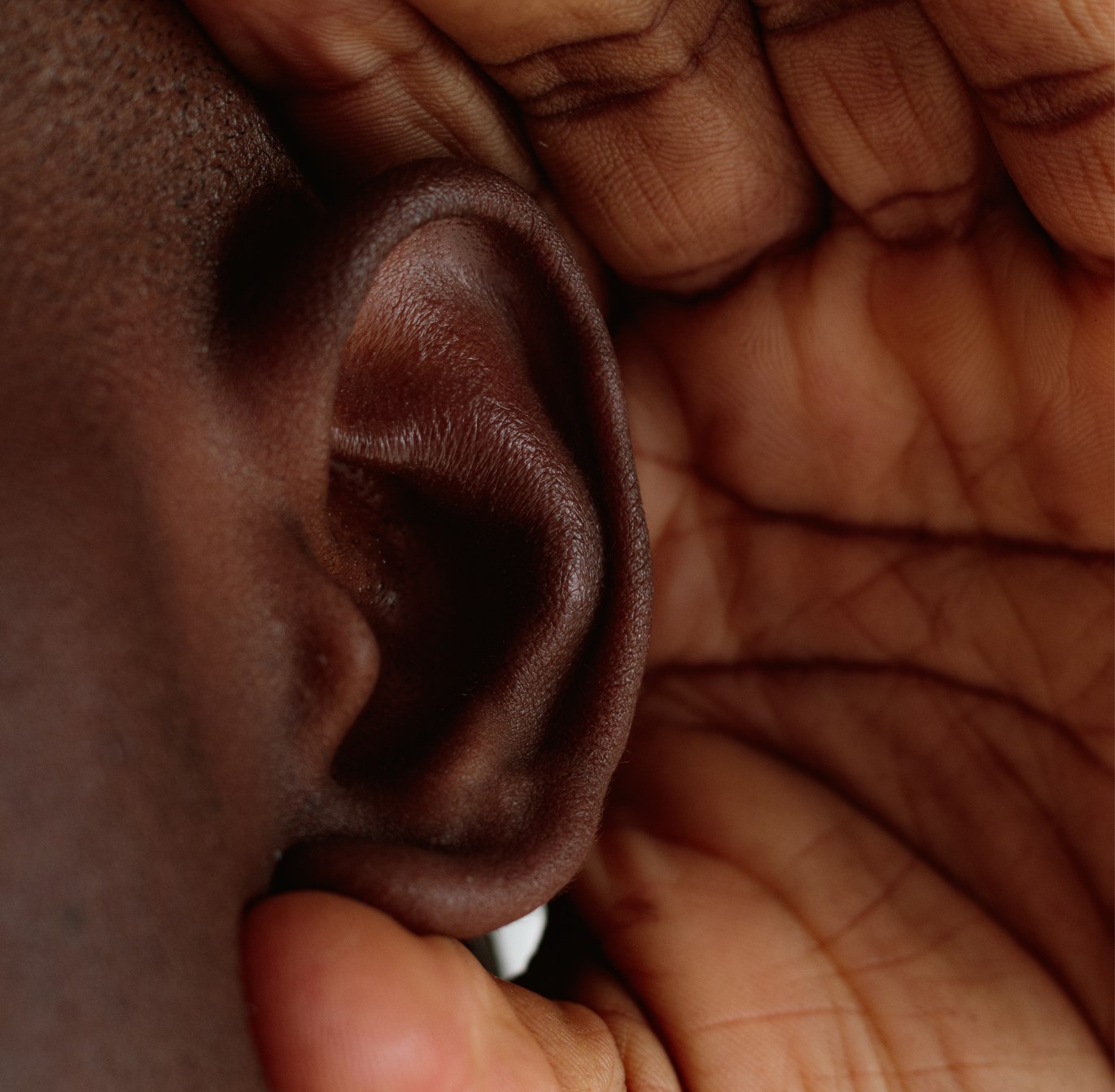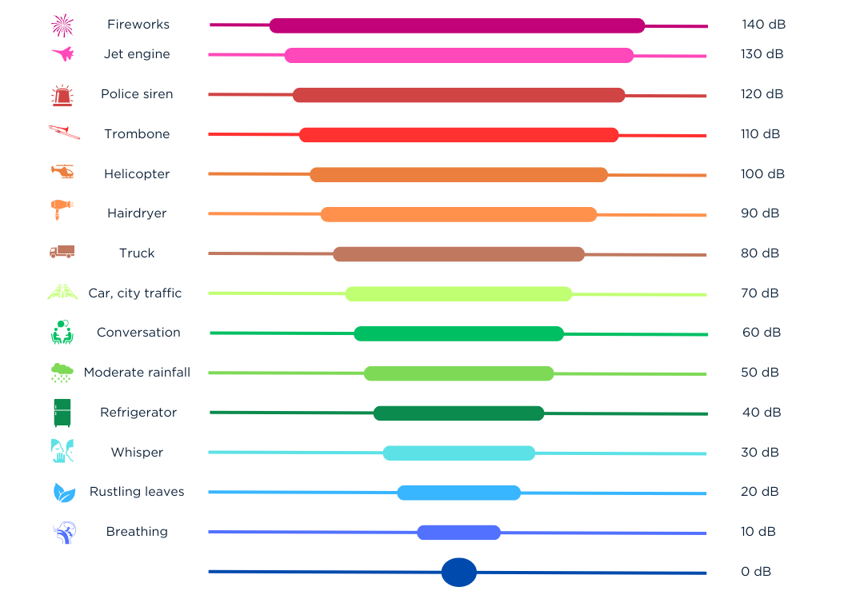Hearing a low humming or buzzing when you are in a quiet room?
During my childhood, I had a Walkman with which I played tapes to listen to music when my parents’ music was “old and boring” on long road trips. I remember it clear as day. “Monique, turn down your Walkman; your music is too loud. You are hurting your ears.” Little did I know that my parents were right because, at that age, I just wanted to listen to music as loudly as possible.
As a student, I worked as a receptionist at a GP’s practice. Here I learned a lot about different conditions. Tinnitus is one of the conditions that sparked my curiosity. I had many conversations with the doctor and did some reading about this condition.
According to the Mayo Clinic website, tinnitus is when an individual experiences ringing or other noises in one or both ears. The noise is not caused by an external sound and other people usually cannot hear it. Severe tinnitus can be irritating and result in anxiety, difficulty concentrating and sleeping. Just imagine carrying a humming machine all day and night; it could become quite annoying very quickly.

Tinnitus often occurs when the hair cells in the cochlea, which is the part of the ear responsible for receiving sound, become broken or damaged. This can happen, for example, by listening to loud music like my younger self did on those trips.
But what constitutes “loud” sounds? Sounds louder than 70 decibels (dB) (the unit to measure sound levels) are considered potentially damaging, as prolonged exposure to noise levels above this level might lead to hearing damage. If the noise escalates to 120 dB or higher, immediate harm to the ears can occur. To put it in context, a whisper between individuals is around 30 dB, while a normal conversation hovers at 60 dB (National Center for Environmental Health, 2022).
It is important to note that although the causes of tinnitus could also cause hearing loss, not everyone with tinnitus will experience a decline in their hearing abilities.
The diagram below indicates the dB of commonly encountered sounds:

Tinnitus is also not necessarily a permanent condition. For example, one can experience tinnitus after attending a big concert, but this can be a temporary effect for a few hours or days after that as the sound level at some life concerts is known to measure 85 dB, 25 dB higher than a typical conversation sound of 60 dB.
The National Institute on Deafness and Other Communication Disorders (NIDCD) explains that tinnitus can also arise from the natural ageing process, particularly in individuals already dealing with hearing loss. People taking high doses of certain medications (like anti-inflammatory drugs (ibuprofen, naproxen and aspirin) can also start developing side effects, including tinnitus. Other possible causes are fluid from a simple ear infection, injuries to the head and neck damaging the ear structure, tumours of the nerve supplying the ear (acoustic neuroma), abnormal blood vessels in the ear and hearing disorders such as Meniere’s Disease.
At PPS, tinnitus is not covered as a condition, but the long-term effects associated with tinnitus, such as hearing loss, might result in a claim. PPS members can claim on the PPS Sickness and Permanent Incapacity benefit, Occupational Disability Provider, Functional Disability Provider and Critical Illness Cover if the hearing loss meets the claim criteria for the condition. Please refer to the PPS ProviderTM Policy for exact details.
As hearing loss can cause significant impairment, pre-existing hearing loss will carry terms on the PPS Sickness and Permanent Incapacity benefit, Professional Disability ProviderTM(both Occupational Disability Provider and Functional Disability Provider) and Critical Illness Cover when PPS underwrites a member for cover. The terms will usually be in the form of an exclusion. Tinnitus in the absence of hearing loss may also carry terms as the condition itself can indicate abnormalities of the ear and cause significant distress and result in claims.
The cause of the hearing loss is also important and may also be underwritten, e.g., if the hearing loss was due to a malignancy of the ear or brain, the applicant would be underwritten for cancer as well. If the cause of the hearing loss does not affect life expectancy, the PPS Professional Life ProviderTM will usually be at ordinary rates. Requirements at the underwriting stage will often include a report from the treating ENT or neurologist with sight of the latest hearing test.
In most cases, tinnitus cannot be cured. However, the good news that NIDCD also shares is that there are treatments that can reduce the distress associated with tinnitus. Some of these treatments include using sound generators, which help mask the tinnitus and allow a person with tinnitus to relax and sleep. These generators can be wearable or on a smartphone. Certain hearing aids can also be used to manage tinnitus and can be adjusted at any time of the day. Another effective way to treat the side effects of tinnitus is with counselling sessions such as cognitive behavioural therapy to teach the patient how to address some negative thoughts created because of this condition that is affecting their quality of life. Sometimes sound therapy and counselling are combined into one treatment process. Speech and hearing therapists also use tinnitus retraining therapy to help with the condition.
I discovered that the sound levels of a standard iPod or Walkman can be between 50 and 100 dB. I now know why my parents asked me to turn down the volume of my Walkman and why I felt slightly deaf when I removed the headphones from my ears after listening to loud music for a long time.
Luckily, I have not yet experienced ringing or humming in my ears.
Reference:
https://www.mayoclinic.org/diseases-conditions/tinnitus/symptoms-causes/syc-20350156
https://www.medicalnewstoday.com/articles/321093#outlook
https://www.nidcd.nih.gov/health/tinnitus
By Monique Drotsky: Technical Marketing Specialist
PPS is a licensed insurer conducting life insurance business, a licensed controlling company and an authorised FSP.
Business Brief Articles
https://www.pps.co.za/business-brief/hearing-low-humming-or-buzzing-when-you-are-quiet-room







